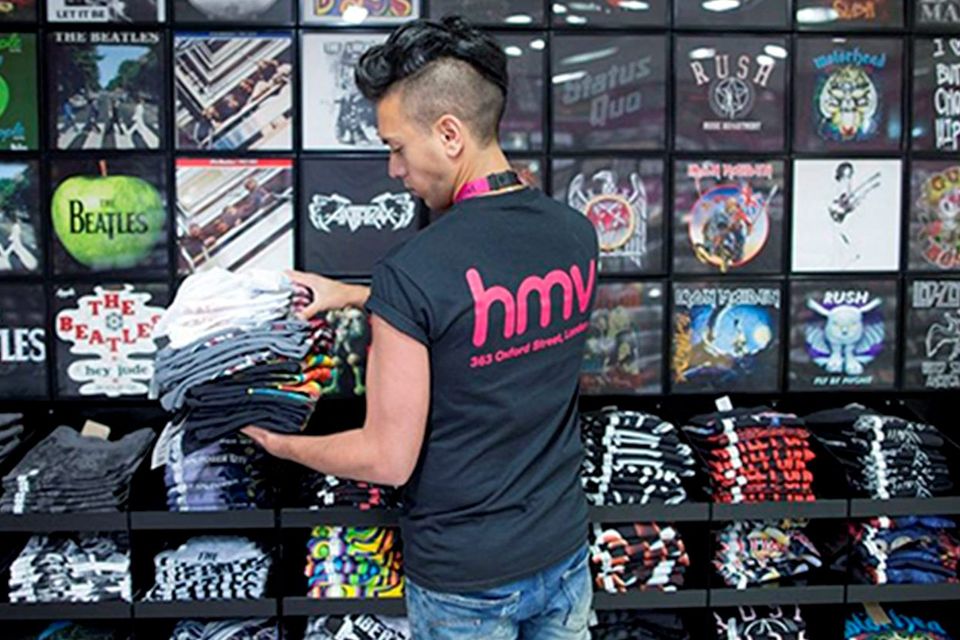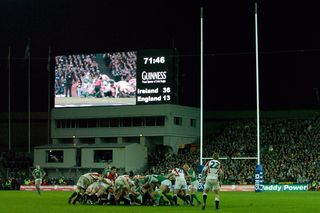Out of tune: Why HMV reboot failed
New tricks: While HMV may be quitting the traditional record-shop model, its name will live on in a new movie-streaming service
There was genuine excitement and goodwill when HMV returned to the Irish market in 2014. It was a sign, many of us then thought, that the demise of bricks-and-mortar record shops had been overstated. But here we are, just over two years later, and the last rites are, yet again, being administered to a once formidable high street brand.
HMV Ireland, which is owned by Hilco Capital, is in the process of shutting its Republic of Ireland stores and all will likely be closed by the end of this month. But the especially sad thing is that the writing was on the wall shortly after they opened for business again. It was obvious that their offering hadn't changed enough since their previous difficulties and the overwhelming reliance on CDs and DVD box sets was doomed for failure.
My last few visits to their Grafton Street store (in the former Karen Millen building that they moved into last summer), were dispiriting. The store was garish and uninspiring and the piled-up, heavily discounted stock failed to get the pulse racing. Frankly, picking through these bits of plastic felt a little like being let loose in a museum.
I couldn't help but notice that many punters walked in, did a quick, listless tour of the aisles and strolled out again without making a purchase. When every album in the place could be found on a streaming service near you, and where the likes of Netflix are cornering the market on the box-set dramas, is it any wonder they weren't parting with their cash?
When HMV reopened in 2014, streaming was already a big deal - Spotify, still the market leader, have been around since 2008 - but the past two years have seen a veritable explosion in the area. Google Music, Apple Play and Tidal have all muscled in and made a significant impact, while the likes of Deezer and Pandora have seen substantial rises in popularity globally.
Right now - and until August 14 - Three Mobile is offering all new and existing customers the opportunity to experience Deezer Premium for free for six months. Its usual price is €10, but if even a fraction of those are happy to continue with a (paid) subscription, that's yet another tranche of people who are less likely to pay for a streaming subscription and purchase physical music.
Revolutions can take time to happen and streaming's tipping point was probably only reached in the past 12 months. UK research released in June shows that 14pc of people there pay for a streaming music service, although the figure still purchasing CDs stands at 23pc. The survey didn't mention how much they spend on either format, but given that the typical annual streaming subscription weighs in at around €120 per annum, they'd need to be purchasing 10 or so CDs to spend that amount. I'm not sure they are, frankly, and there's every chance that some of those who said they bought physical music darkened the door of a record shop just the once, and that was the buy a copy of Adele's stupendously popular 25.
Increasingly, it's felt like streaming is the optimum way to experience music. The arrival of 4G - around the time HMV was making its comeback in Ireland - has ensured that for the most part, the streaming experience is seamless.
After doggedly resisting Spotify for years, I finally got on board with streaming when Tidal was launched in early 2014. Here was high-res audio that boasted all the sonic fidelity of compact disc, but the wonderful portability of Spotify. Tidal was purchased by Jay Z shortly afterwards and the relaunch is remembered for how misjudged it was, with a galaxy of super-wealthy A-list musicians moaning about how little revenue they received from the traditional streaming model.
But 2016, in particular, has shown that streaming services, and especially Tidal, are often the first places you can hear music. Two of the year's most talked about albums, Kanye West's The Life of Pablo and Beyoncé's Lemonade, were exclusively unveiled on Tidal while other streaming companies - and, of course, traditional record companies - were left out in the cold.
There's no reason to assume that such big albums won't be released in such a fashion in future - very bad news indeed for the likes of HMV and its rivals, and for those who hanker after the days where you could go into a record shop on the day of release and emerge with the physical product. But the truth is, few feel much affection for CDs now and, in truth, it was a format that never truly captivated its audience in a way that vinyl did, or books continue to do.
And while vinyl has seen something of an increase in popularity, we're still talking very small potatoes here. Most of those media reports you might have read that proclaimed the "resurgence" of vinyl have been outlandishly wide of the mark - it's a specialist format, and no amount of talk about its tactility or the 'warmth' of its sound will change.
Maybe it's time to regard record shops as specialist retail experiences, too. The ones that appear to be doing best have a specialised offering - look at Tower Record's extensive classical-music section, for instance - while many focus on second-hand and collectible offerings, including a large stock of original vinyl.
HMV found themselves with product not enough people wanted to buy, and very significant rents to boot - Grafton Street, for instance, is once more among Europe's most expensive shopping streets.
While it may be quitting the traditional record-shop model in this country, the HMV name will live on as it aims to offer a movie-streaming service on demand. It will find itself going up against such established giants as Netflix and Amazon Prime, but the company is bullish it can succeed. It says it will offer upwards of 3,000 movies by the end of this year or beginning of next. A new chapter will soon begin.
Join the Irish Independent WhatsApp channel
Stay up to date with all the latest news















